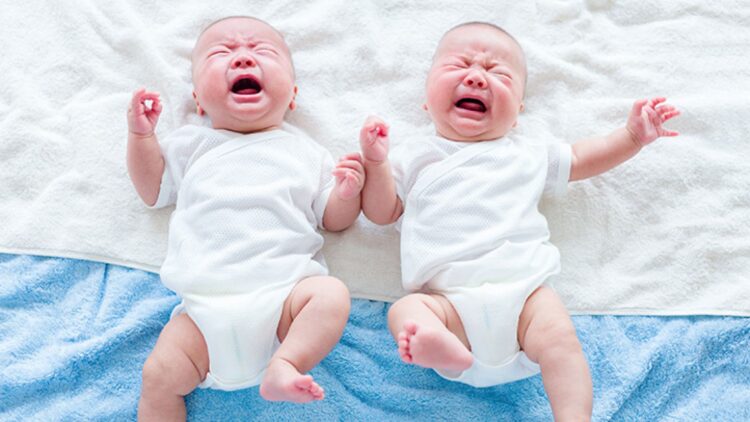For many years, it was believed that letting babies cry without picking them up or comforting them would help them fall asleep and learn to sleep on their own. Science now says this isn’t the best approach for a baby’s development. Child neuroscience demonstrates that crying isn’t a whim; it’s the only language babies have to communicate. Responding to their cries doesn’t spoil them, as is commonly thought; rather, it connects them to security, fosters emotional bonding, and promotes healthy emotional development that will shape their lives. This is how experts explain it.
The idea that ‘crying makes you stronger’
The fact is that for decades it has been repeated that letting a baby cry makes them stronger or more independent. But this isn’t just an idea from our mothers or grandmothers; it’s all part of the context, the environment, current scientific understanding, and even economics and politics. The idea that ‘crying makes you stronger’ emerged at the beginning of the 20th century, when parenting became rigid and disconnected. These kinds of methodologies suggest that babies should be left to cry. Behaviorist approaches recommended limiting physical contact, not holding babies too much, and teaching them to sleep alone, as if they were little adults. In any case, the most important thing is to understand that crying is a primary form of communication.
With the advancement of science, it has been discovered that babies don’t always cry to express discomfort, but rather use this means to signal that something is wrong. Today, we know that earlier theories ignored the biology of secure attachment, something that is now much more prevalent in modern parenting, as their nervous system needs contact, calm, and presence to mature. Crying allows them to communicate that their basic needs are not being met; that they are hungry, thirsty, uncomfortable… And it is also known that leaving a baby to cry without comfort generates toxic stress, raises cortisol levels, and disrupts the brain’s emotional regulation.
Crying is evolutionarily designed and programmed to attract the attention of adults and ensure survival
According to experts, a baby isn’t trying to manipulate; it’s trying to survive. When a baby cries, it expects its caregivers to react and respond to its needs immediately. Science shows that when an adult responds tenderly to a cry, the child’s body produces hormones that promote bonding and reduce the release of cortisol, the stress hormone, which in excess can damage neurons. As mentioned above, crying is evolutionarily designed and programmed to attract the attention of adults and ensure survival. In fact, ignoring a baby’s cries and allowing them to persist for extended periods can have negative effects and even convey to the baby that their environment is not safe enough or that they are not being properly cared for.
As with everything, it’s also important to keep in mind that extremes are rarely recommended. That is, not letting a baby cry is better than letting them cry; but choosing to let them cry, because sometimes situations can overwhelm us, isn’t wrong either. Therefore, and always referring to experts, sensitive parenting is linked to better cognitive and emotional outcomes, even in clinically vulnerable children. Furthermore, it has been shown that parental emotional availability at bedtime is also related to cortisol levels. Attending to the baby, therefore, not only calms them but also shapes the brain architecture that will contribute to the future well-being of the child.
Although it may seem contradictory, babies who receive constant attention become more independent as they grow. When parents respond to their baby’s cries and needs, a secure attachment is built, allowing the baby to feel protected and trust their caregivers. In cultures where children are held, cared for, and breastfed on demand, little ones explore the world with greater confidence. In other words, if left to cry, a baby learns that no one is available when they ask for help. This affects the development of their self-esteem and self-confidence. A comforted child learns to trust the world; an ignored one, to fear it, experts explain. Ultimately, it’s a team effort that can be much easier. On the one hand, babies need time, affection, and attention; and on the other, parents need emotional support and a network of help to navigate this crucial stage of life.

